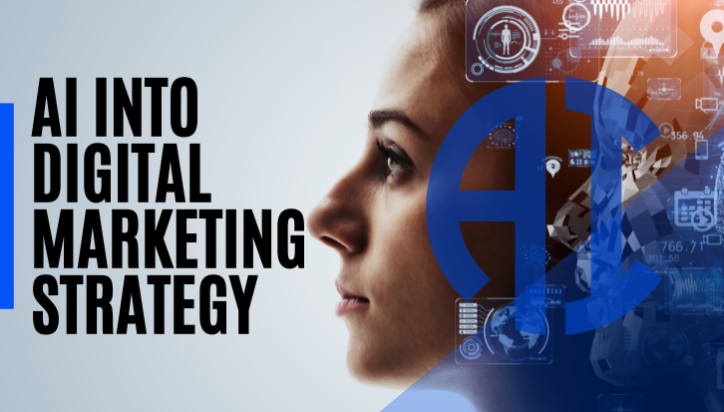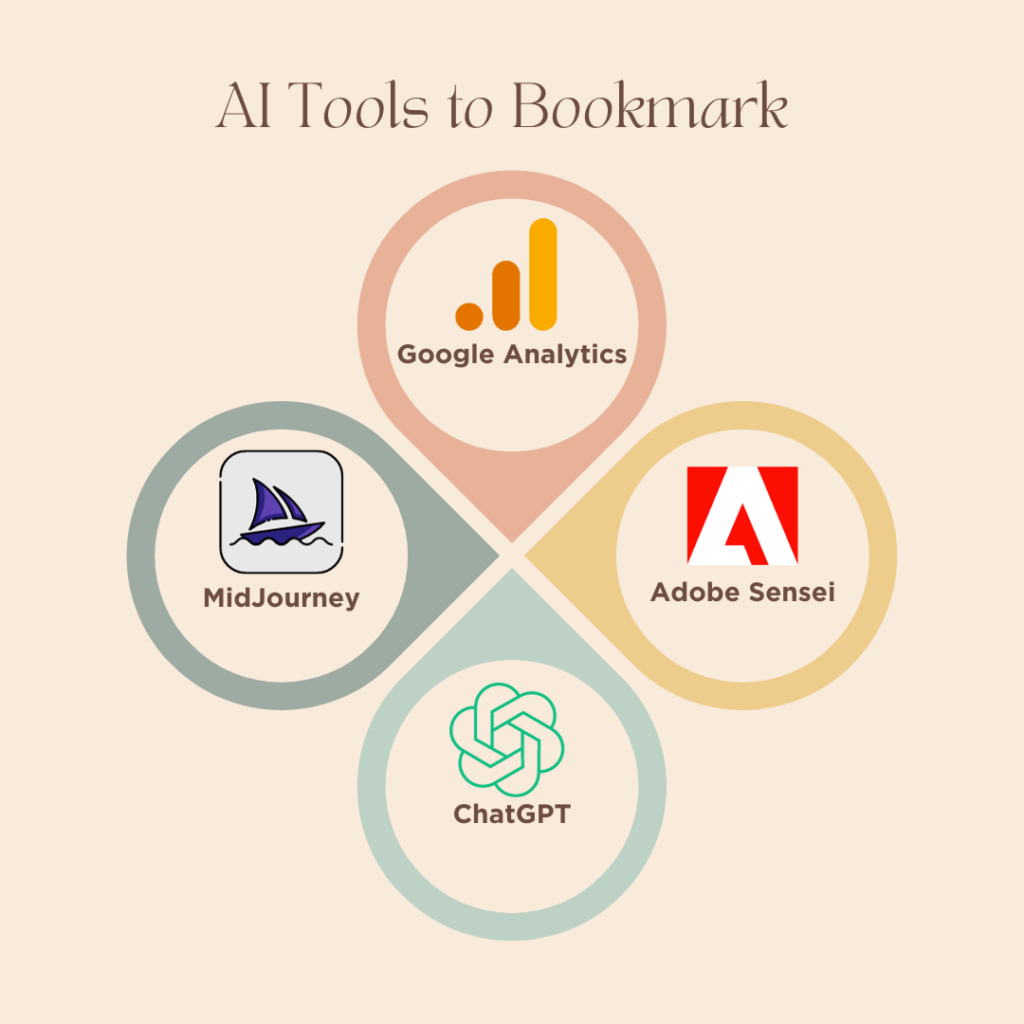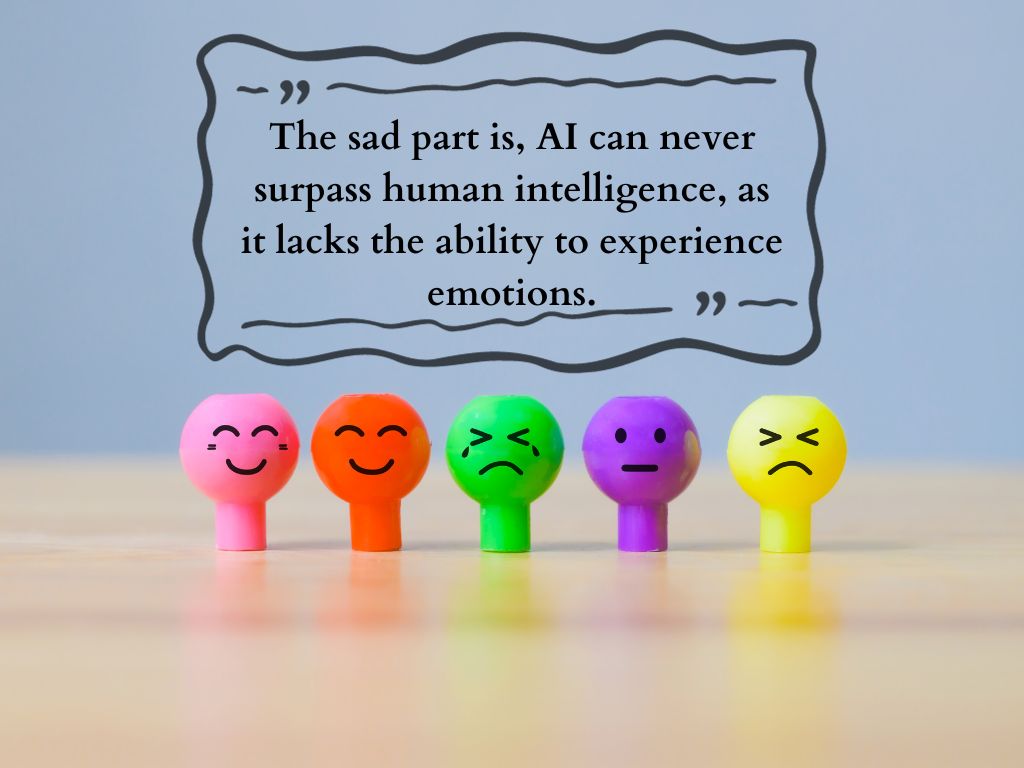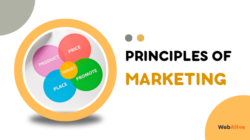
Integrating AI Into Your Digital Marketing Strategy: A Future-Proof Approach
It’s not exactly hot off the press that Artificial Intelligence technology has seen huge growth in the past 12 months, emerging as a game changer in many different industries.
Its rapid development and integration into various marketing tools and strategies have revolutionised how businesses interact with customers, analyse data, and optimise their marketing efforts. AI, once a futuristic concept, is now a tangible and vital component of the digital marketing toolkit, offering unprecedented insights and automation capabilities.
The landscape of digital marketing is witnessing a transformation driven by AI technologies such as machine learning, natural language processing, and predictive analytics. These advancements are not just enhancing the efficiency of building marketing campaigns, but when utilised properly, can mean a better experience for customers and users.
It’s no longer just about staying ahead of the curve; integrating AI into your digital marketing strategy is becoming essential for future-proofing your marketing efforts and ensuring long-term success in a competitive marketplace.
But how much of your process should you be running via these tools? How much AI is too much?
Let’s explore this further.
Understanding AI in Digital Marketing
Artificial Intelligence (AI) in digital marketing refers to the use of advanced algorithms and computing power to simulate human intelligence in analysing data, making decisions, and executing tasks. There is a reason some of the biggest brands in the world are using AI to gain a competitive advantage.
At the core of AI’s relevance in digital marketing is its ability to process vast amounts of data at incredible speeds far beyond human capability. This allows marketers to gain deeper insights into customer behaviour, preferences, and trends.
It allows for much more efficient content generation, from written content to images, infographics and videos. AI technologies such as machine learning, natural language processing (NLP), and predictive analytics are pivotal in this transformation.
4 AI Tools to Bookmark
A variety of AI tools and platforms have emerged as AI technology has developed, offering marketers new levels of efficiency and insight. These tools cater to various aspects of marketing, from data analysis and customer segmentation to automated content creation and personalised recommendations.

1. Data analysis tools
AI-driven data analysis tools are invaluable for understanding market trends and customer behaviour. Platforms like Google Analytics use AI to provide deep insights into user interactions on websites and apps. These tools help marketers track performance metrics, understand user pathways, and make data-driven decisions.
2. Customer segmentation tools
AI also enables more sophisticated customer segmentation. Adobe Sensei, for instance, uses AI and machine learning to segment audiences based on their behaviours, preferences, and engagement patterns. This allows for more targeted and effective marketing campaigns.
3. Automated content creation tools
AI is revolutionising content creation. Most marketers are using ChatGPT daily in some fashion, and many plugins have been developed for OpenAI that provide further customisations. This technology is particularly useful for creating personalised content at scale and helping brands create optimised content that is AI detector-proof, ensuring originality and SEO compliance.
“
4. Image & video generation
There are a host of options that have emerged in the space of AI video and art, which can contribute to your marketing efforts in countless ways. Different tools have their own pros and cons depending on how you wish to apply them. MidJourney is a popular tool that allows you to transform descriptions into compelling visual images.
Adding AI to your Existing Workflow
Seeing that it’s still developing, our advice is to be open to experimentation in the AI space and see what tools you can discover to help your marketing efforts. Here are some areas that you might look to get started in implementing AI into your workflow:
1. Blogs and web content
AI-driven content generation tools like those discussed can help analyse existing data, trends, and user interactions to produce relevant and engaging content ideas. Remember that using AI to help your efforts here doesn’t necessarily mean having the tool write entire pieces of content for you.
A human touch is still required to ensure readability, relevance and quality. But at the very list, these tools can help you form the general outline of your content and help you get ideas down in a more efficient way.
Keep in mind as well that AI can help you optimise for search engines, including generating SEO-friendly content, meta-tags, etc. Indeed, any marketing collateral can benefit from the use of these tools.
2. Infographics
Infographics have become a vital tool in marketing, offering a visually engaging way to present complex information and data in a clear, concise, and attractive manner.
AI-driven tools can analyse large datasets and automatically generate infographics that highlight key patterns, trends, and insights. This not only saves time and resources but also ensures accuracy and relevance in the data presented.
AI can also tailor the design of infographics to match brand aesthetics and audience preferences, making them more effective in engaging viewers and conveying the intended message.
3. PPC Ad Campaigns
In Google Ads, AI algorithms can analyse vast amounts of data to optimise bidding strategies, targeting, and ad placements in real time, ensuring that ads reach the most relevant audience at the optimal time. Similarly, for Facebook Ads, AI can help in segmenting audiences more accurately, personalising ad content, and predicting the performance of different ad elements, from images to copy.
AI’s predictive analytics capabilities enable marketers to foresee which ads are likely to perform best, thereby optimising ad spend and ROI.
How Much AI Content is Too Much?
This is a good question and something that has had a lot of discussion, particularly in the SEO community. You might wonder how safe it is to use AI to generate content at scale, given that Google has become particularly picky with the kind of material it wants to reward.

Google’s official stance on AI-generated content emphasises the importance of quality and user value. According to Google, content primarily created to manipulate search rankings rather than to help users is considered a violation of their guidelines. This includes AI-generated content that is not original or useful to users.
Overusing AI for content creation, especially without significant human oversight or contribution, can lead to issues with search engine rankings. Google’s algorithms are increasingly sophisticated in identifying and penalising low-quality, repetitive, or unoriginal content.
Therefore, while AI can be a powerful tool for content generation, it’s essential to ensure that the output is unique, adds value, and aligns with Google’s focus on content quality. Integrating AI content thoughtfully and creatively, with a focus on enhancing user experience, is key to maintaining and improving SEO performance.
Staying Ahead: The Future of AI in Marketing
As we look towards the future, AI’s role in digital marketing is set to become even more significant and transformative. Staying abreast of these advancements is essential for maintaining a competitive edge in an increasingly digital marketplace. Here are some trends and predictions for the future of AI in marketing:
Enhanced personalisation
AI’s ability to analyse data and predict consumer behaviour will become even more sophisticated. This will lead to hyper-personalised marketing strategies where content, product recommendations, and customer interactions are tailored to individual preferences at an unprecedented level.
Voice and visual search optimisation
With the rise of smart speakers and visual search technologies, AI will play a crucial role in optimising content for voice and visual searches. This will require new SEO strategies focused on natural language and image recognition.
Predictive customer service
AI will enable businesses to anticipate customer issues and queries before they arise, offering proactive solutions. This predictive customer service will enhance customer experience and satisfaction.
Real-time marketing decisions
AI will enable marketers to make real-time decisions based on live data analysis. This will allow for more dynamic and responsive marketing strategies that can adapt to changing consumer behaviours and market conditions.
Ethical AI and privacy
As AI becomes more integral to marketing, ethical considerations and data privacy will become even more paramount. Marketers will need to balance personalisation with privacy, ensuring AI is used responsibly.
Augmented reality (AR) And AI integration
The integration of AI with AR will provide immersive and interactive customer experiences, offering new ways for brands to engage with consumers.
Conclusion
Our exploration of integrating AI into digital marketing strategies, it is clear that AI is not just a fleeting trend but a fundamental shift in how we approach marketing in the digital age. The key takeaways are profound: AI offers unparalleled insights into customer behaviour, opens up new avenues for personalised marketing, and significantly enhances the efficiency and effectiveness of marketing campaigns.
As we move forward, it’s crucial for marketers to embrace AI, not just as a technological tool but as a strategic partner that can propel their marketing efforts to new heights. Staying updated with AI advancements, experimenting with new AI tools, and continuously adapting strategies will be key to leveraging AI’s full potential.
You read a lot. We like that
Want to take your online business to the next level? Get the tips and insights that matter.

